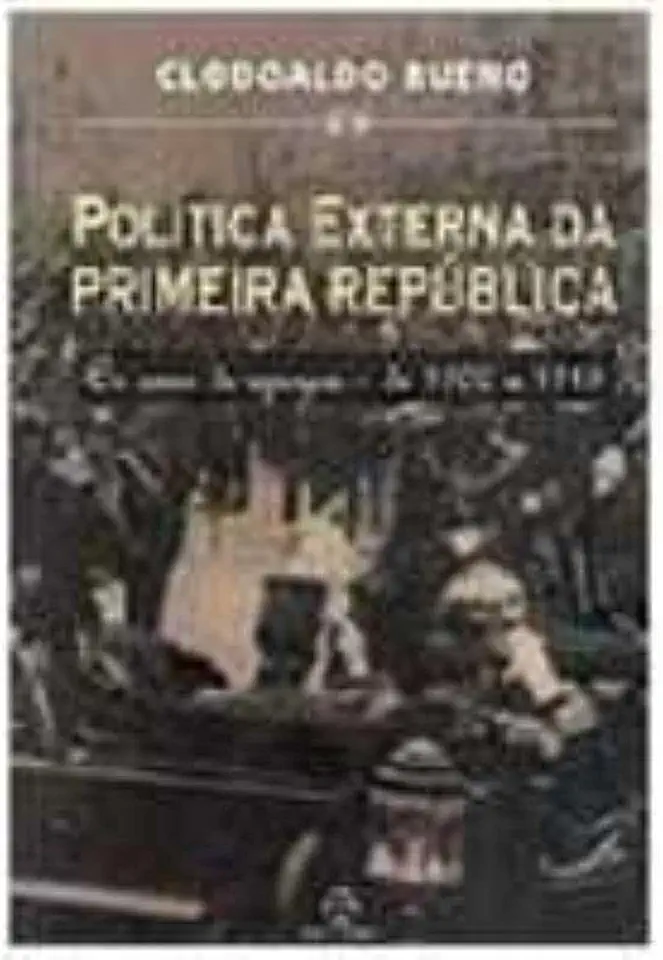
Foreign Policy of the First Republic - Clodoaldo Bueno
Foreign Policy of the First Republic: Brazil's Role in the World, 1889-1930
Introduction
Brazil's foreign policy during the First Republic (1889-1930) was a period of significant change and development. The country emerged from the monarchy as a young and ambitious republic, eager to assert its place in the world. This book provides a comprehensive and insightful analysis of Brazil's foreign policy during this crucial period, shedding light on the key events, decisions, and personalities that shaped the nation's international relations.
Brazil's Rise to Prominence
In the late 19th century, Brazil was a rising power in Latin America. With its vast territory, abundant natural resources, and growing economy, the country was poised to play a more significant role in international affairs. The book explores how Brazil's leaders navigated the complex geopolitical landscape of the time, forging alliances, resolving conflicts, and promoting its national interests.
Key Themes and Challenges
The book identifies several key themes and challenges that characterized Brazil's foreign policy during the First Republic. These include:
The Monroe Doctrine and Pan-Americanism: Brazil's relationship with the United States was a central aspect of its foreign policy. The book examines how Brazil sought to balance its desire for autonomy with the need to maintain good relations with its powerful neighbor.
Territorial Disputes and Boundary Negotiations: Brazil faced several territorial disputes with its neighbors, particularly Argentina, Uruguay, and Paraguay. The book explores the diplomatic efforts and negotiations undertaken to resolve these conflicts and secure Brazil's territorial integrity.
Economic Diplomacy and Trade Relations: Brazil's foreign policy was closely intertwined with its economic interests. The book analyzes how Brazil sought to expand its trade and investment opportunities, negotiate favorable agreements, and attract foreign capital.
Cultural Diplomacy and International Prestige: Brazil also used cultural diplomacy to enhance its international prestige and influence. The book highlights the country's participation in international exhibitions, cultural exchanges, and diplomatic missions aimed at promoting Brazilian culture and values.
Key Figures and Decision-Makers
The book profiles several key figures who played a pivotal role in shaping Brazil's foreign policy during the First Republic. These include:
Baron Rio Branco: The most prominent figure in Brazilian foreign policy during this period, Rio Branco was a skilled diplomat and statesman who left a lasting legacy on the country's international relations.
President Epitácio Pessoa: Pessoa's presidency marked a period of intense diplomatic activity, including the negotiation of several important treaties and agreements.
President Artur Bernardes: Bernardes faced significant challenges in foreign policy, including the aftermath of World War I and the rise of nationalism in Latin America.
Conclusion
"Foreign Policy of the First Republic" is a comprehensive and well-researched account of Brazil's foreign policy during a critical period in its history. By examining the key themes, challenges, and decision-makers of the time, the book provides a deeper understanding of Brazil's emergence as a major player in international affairs. This book is a valuable resource for scholars, policymakers, and anyone interested in the history of Brazil and Latin America.